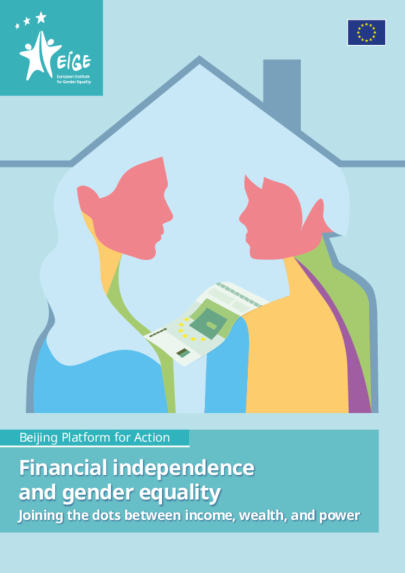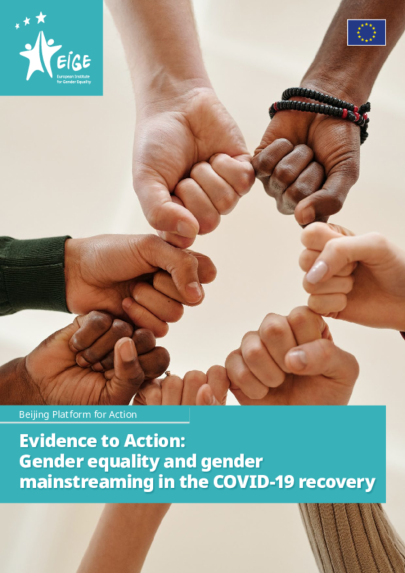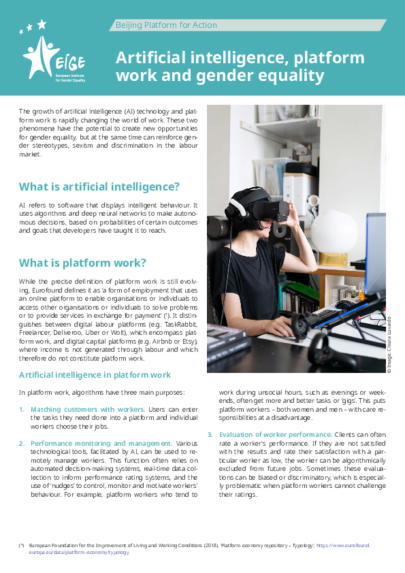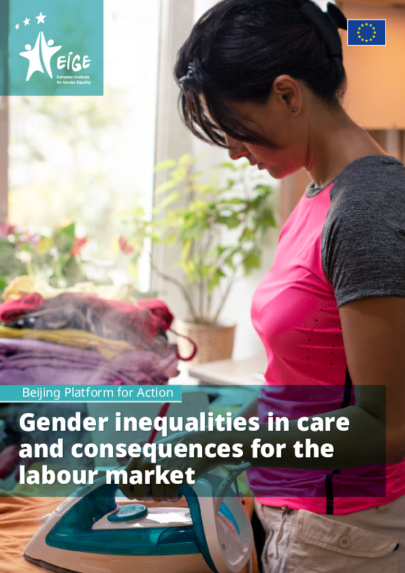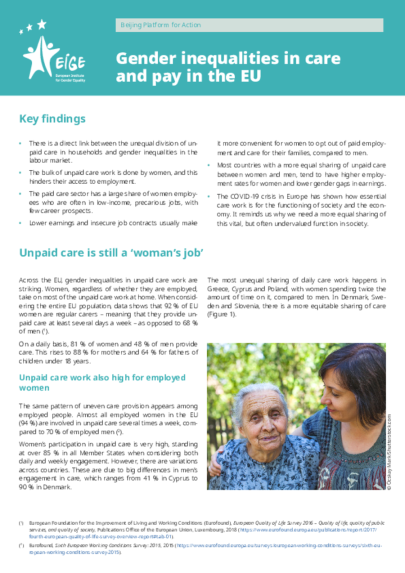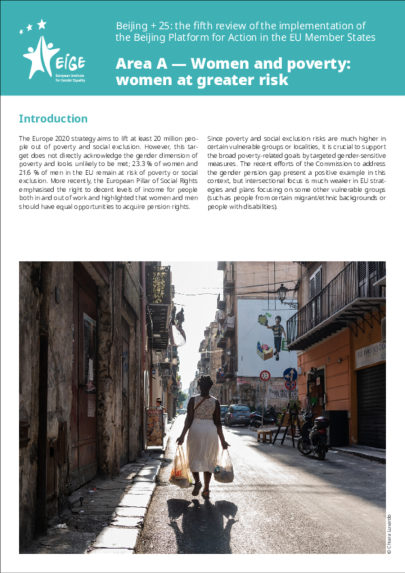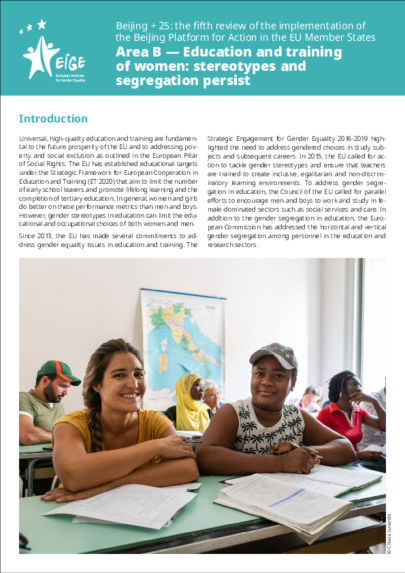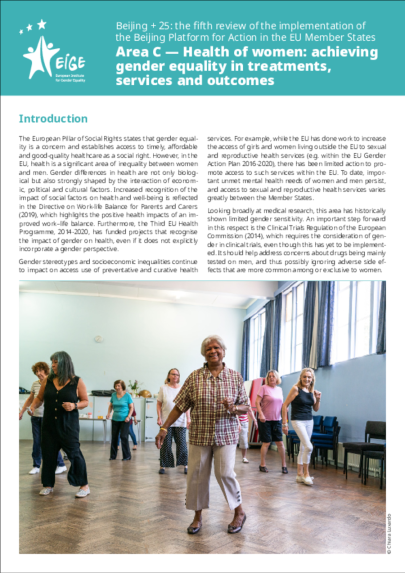EIGE reports and publications
To support better informed policy-making at EU and Member State levels, EIGE focuses on providing support to the Presidencies of the Council of the EU.
We do so by delivering high-quality reports on the progress of gender equality in the critical areas of concern of the BPfA chosen by the Presidencies.

